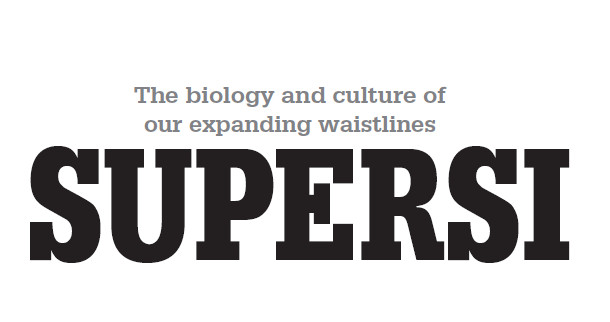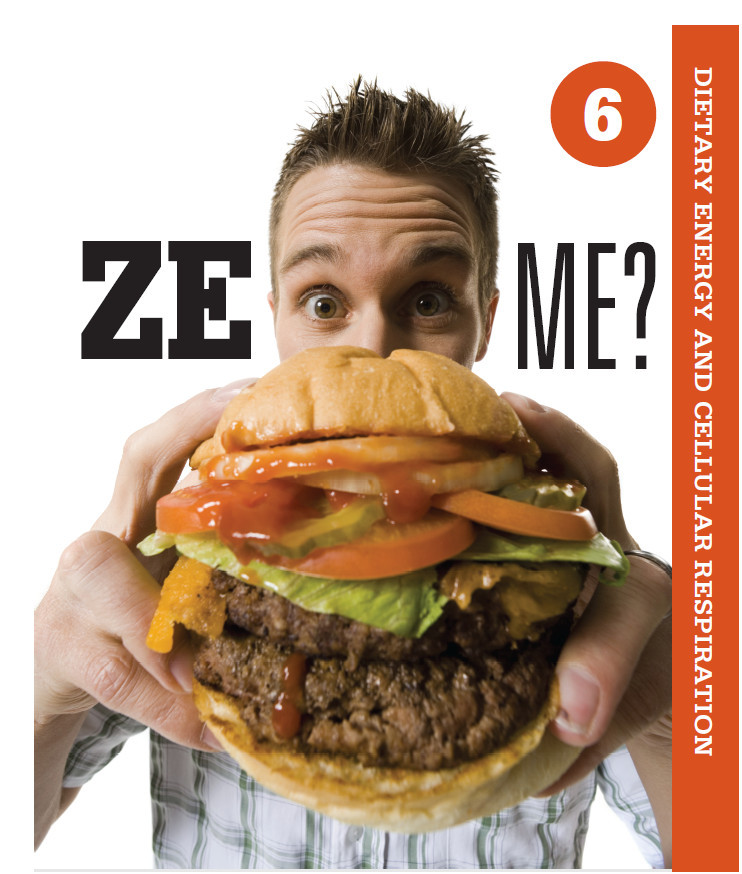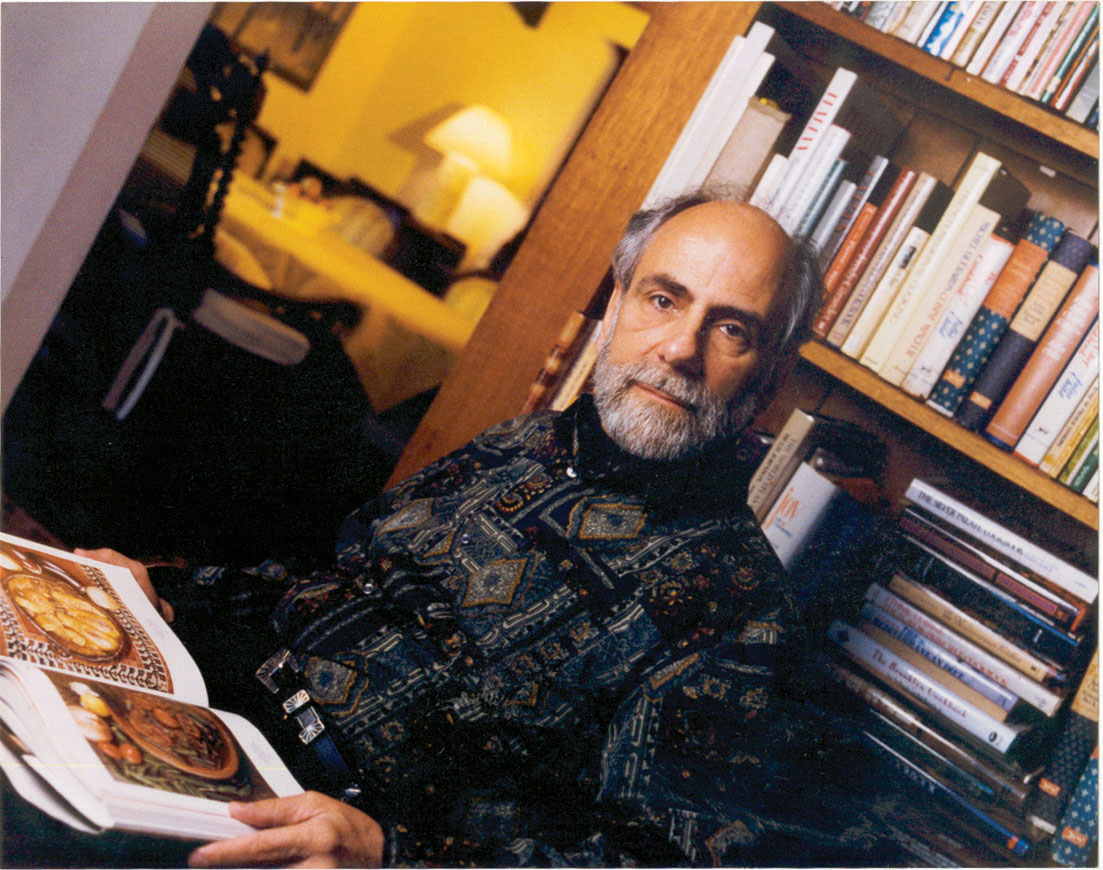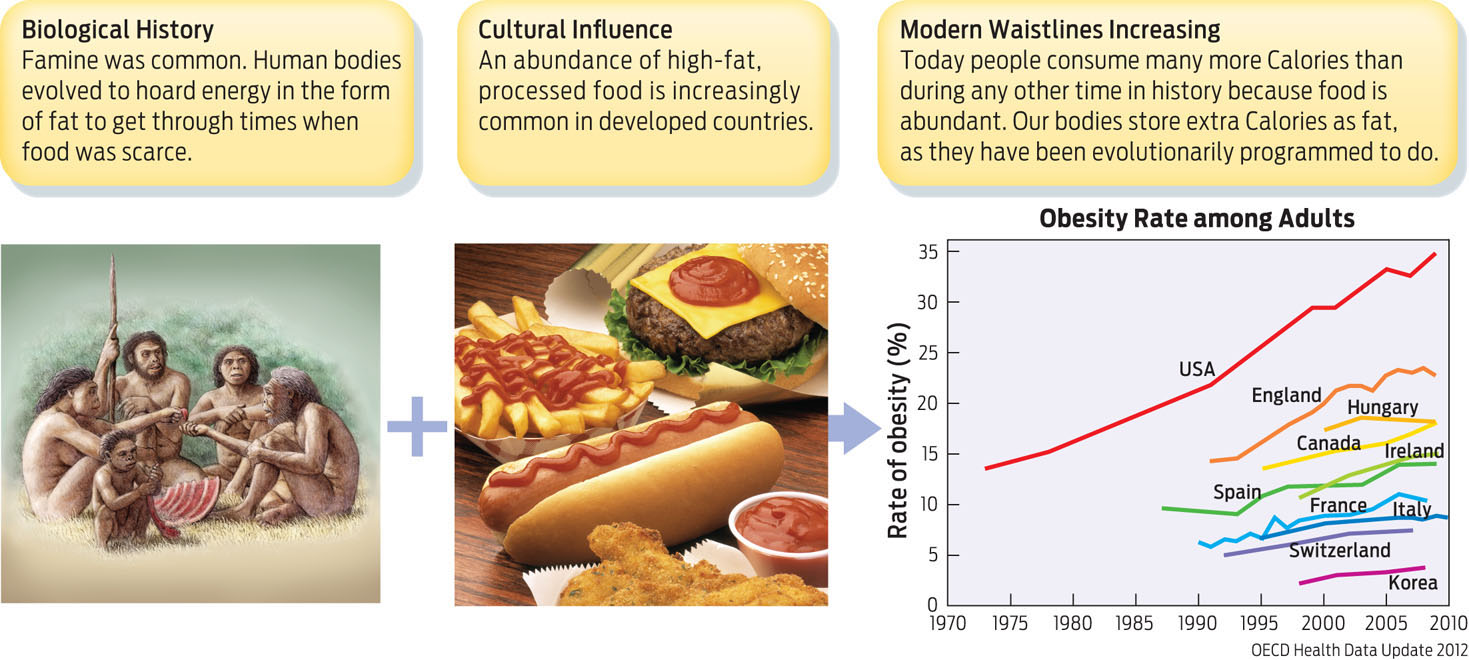


 DRIVING QUESTIONS
DRIVING QUESTIONS
- Why do humans weigh more now than in the past?
- How does the body use the energy in food?
- How does aerobic respiration extract useful energy from food?
- When does fermentation occur, and why can’t it sustain human life?
In-Class Activity
Click here to access Lecture ppt specifically designed for chapter 6.
Click here to access Clicker Questions specifically designed for chapter 6.
 or years, Paul Rozin, a professor of psychology at the University of Pennsylvania, was baffled by this question: How are the French able to eat rich cheeses, butter-laden sauces, flaky croissants and pastries, and still stay slimmer than Americans? To put it more crudely, why doesn’t all this fat make them fat?
or years, Paul Rozin, a professor of psychology at the University of Pennsylvania, was baffled by this question: How are the French able to eat rich cheeses, butter-laden sauces, flaky croissants and pastries, and still stay slimmer than Americans? To put it more crudely, why doesn’t all this fat make them fat?
Rozin is not alone. Researchers have been scratching their heads for years over the weight differences between the populations of the United States and France. As of 2011, 33% of American adults were overweight and 36% were obese, while only 27% of French adults were overweight and 11% obese. Cardiologists have even observed that, despite their rich diet, the French have lower rates of heart disease than Americans and have dubbed the phenomenon “the French paradox.” And as the average weight of humans in most developed nations has increased in the last 30 years, many wonder why waistlines in some countries are expanding faster than in others.
 The idea of what a proper meal is and your own habits are largely instituted by the culture in which you live.
The idea of what a proper meal is and your own habits are largely instituted by the culture in which you live.
— PAUL ROZIN

Americans may take the cake for widest waistlines, but they aren’t the only ones getting rounder. Globally, obesity rates have more than doubled since 1980. As of 2008, approximately 1.4 billion adults over age 20 were overweight and at least 500 million were obese, according to the World Health Organization (WHO). That means more than 1 in 10 people in the world are obese.
Our increasing girth alone wouldn’t be a problem were it not for what can come with it: obesity has been linked to increased rates of heart disease, diabetes, and even certain types of cancer. While research into the exact causes is ongoing, many experts agree that obesity poses serious health risks.
So why are people getting heavier? Biologists argue that humans are predisposed to gain weight. Throughout human evolution, famine was the norm, and people had to work hard to grow or hunt and gather their food. Our bodies have adapted by storing extra food as fat for times when food is scarce.
But social scientists peg another weight-gain culprit: culture. Both how we eat and how much we eat, they argue, are as much to blame for increasing weight as biology. Some societies have remained relatively thin, they point out, despite similar biology. But when these societies adopt American eating habits, which include fast-food, processed snacks, soda, and large portion sizes, they tend to put on pounds (INFOGRAPHIC 6.1).
A BMI chart provides an indirect measure of body fat based on the ratio of body height to weight. Because it does not take frame size into account, BMI is only an estimate of body fat. Some people may register as overweight even though they are a healthy weight.

“Culture is underrated as a contributing factor to unhealthy eating,” says Rozin. “The idea of what a proper meal is and your own habits are largely instituted by the culture in which you live.”
In the United States, there is a growing movement to rein in what has been the cultural norm of unhealthful eating. For example, public health experts have been lobbying the government to pass legislation that would improve people’s access to more-healthful foods, such as fresh fruits and vegetables. Many local governments have already banned restaurants from using trans fats to fry foods. In 2010, Congress passed legislation championed by First Lady Michele Obama that sets higher standards for school lunches and limits the amount of junk food that can be sold in schools.
“Unhealthy food choices have become the default food choice,” says Kelly Brownell, director of the Rudd Center for Food Policy and Obesity at Yale University. “The question is what can we do about it?”